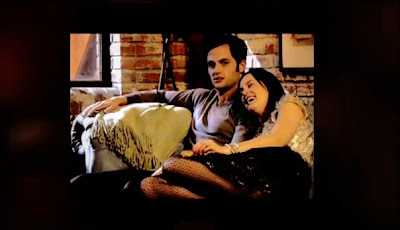Men wore white shirts, drank Manhattans and harassed compliant secretaries in the elevator. Everybody read Reader’s Digest. Jews worked in Jewish advertising agencies, blacks were waiters and careful not to seem too uppity, and doctors smoked during gynecological exams. Women were called “girls.” Men who loved men kept it to themselves.
The magic of “Mad Men” is that it softly spoofs those cruel, antiquated mores without draining away the romance of that era: the amber-lit bars and indigo nightclubs, soaring skyscrapers, smoky railway cars and the brash confidence that comes with winning a war and owning the world. It’s a sardonic love letter to the era that wrought “The Man in the Gray Flannel Suit” and “The Best of Everything,” but homage is paid with more affection than satire.
Matthew Weiner, who was a producer and writer on “The Sopranos,” created “Mad Men” and lends it some of the HBO show’s wit, apt music and sumptuous cinematography. Most of all the series walks the line between tongue-in-cheek knowingness and know-it-all parody.
The advertising executives, who called themselves “mad men,” were at the front of the consumer rat race, hypnotizing the American buyer with huckster campaigns created off-the-cuff in smoky meeting rooms or on a cocktail napkin at El Morocco. The advertising business was flush, blissfully unburdened by aging readerships, failing newspapers, DVRs or the Internet, and only barely accountable to the federal government or public opinion.
And that kind of unbridled freedom is the series’s one speck of sentiment, evoking nostalgia for a time before the current audience-knows-best rule of business, in which viewers vote on who gets to become a pop star, publishers ask readers to choose their authors, and politicians ask viewers to decide what issues they should discuss, as is the plan in next week’s live Democratic debate, a joint project between CNN and YouTube. When Don Draper (Jon Hamm), the suave creative director of the Sterling Cooper Advertising Agency, receives consumer data from the research director that suggests there is no way to avoid addressing Americans’ concerns about the health risks of smoking, Don coolly drops the report in his wastepaper basket.
But Don knows he has a problem. Reader’s Digest says smoking causes cancer, and the Federal Trade Commission won’t allow tobacco companies to suggest there are “safer” brands of cigarettes anymore. Lucky Strike is one of his top accounts. “All I have is a crushproof box and ‘Four out of five dead people smoke your brand,’ ” he complains to his mistress (Rosemarie DeWitt).
She goes by the quaintly dated name Midge, but has her own career as an illustrator and a modern view of love and sex. “You know the rules,” she tells Don as she hands him his wristwatch after their postcoital cigarette. “I don’t make plans, and I don’t make breakfast.”
Midge and the Lucky Strike account are just a few of the many challenges in Don’s life, though his trusting wife and two children tucked away in the suburbs do not appear to be among them.





